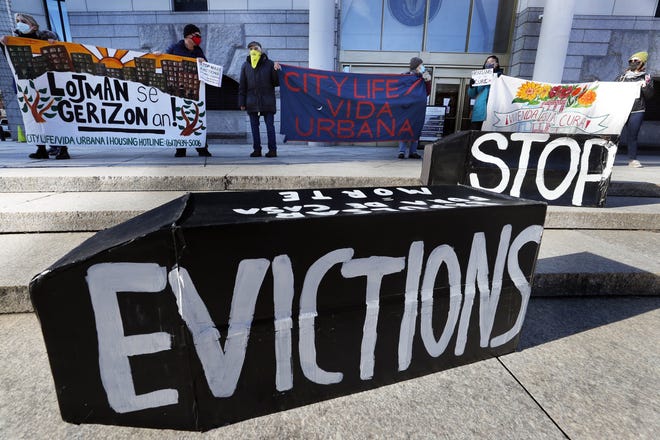Rent Burden or housing affordability is a serious problem facing American families. Renters who stopped making their rent payments last year did not spend their newfound wealth on alcohol, lobsters, and vacations, and they paid down debt and built an emergency fund.
A new CFPB report shows between June 2019 and June 2020 that renters’ credit scores increased by 16 points, their credit delinquency fell to 28%, and their high-interest rate credit balance went down.
Renters, who are more likely to be black or Hispanic, overall financial well-being improved during the pandemic and the resulting recession.
Targeted Pandemic Relief
To prevent the economy from going over a financial cliff, the United States government instituted a robust fiscal stimulus.
Eighteen months ago, the government ordered Americans to shelter-in-place and 95 businesses to shut down. Because of a nearly complete shutdown of the private sector, the U.S Congress passed three major economic stimulus bills, including the CARES act, the Coronavirus Response, and Relief Supplemental Appropriation Act, and the American Rescue Plan. President Trump, then Biden signed them into law.
In all, the U.S. spent more than $6 trillion to try to prevent a pandemic-induced recession from turning into an actual recession or a digression, at worst.
Low- to-moderate income American families benefited greatly from those programs. They received stimulus payments, $3,000 to $3,600 tax credits per child, student loan forbearance, and eviction ban.
The Federal Eviction Moratorium
Congress enacted the eviction moratorium in early 2020. The eviction ban helped renters stay in their homes in response to the emerging threat of covid-19.
Renters, who stopped paying their landlords, did not spend their stimulus checks and rent payments on conspicuous consumptions; as the CFPB report indicates, they paid down high-interest rate debt and built an emergency fund.
Rent Burden or Housing Affordability
More and more American families are finding it difficult to pay the landlord, the hospital administrators, and child-care centers.
The average rent for an apartment in West Palm Beach, Fort Lauderdale, and Miami is $1,862, $2,301, and $1,915, respectively. The median household income in the South Florida metro region was just $62 067 in 2019.
In her article, the Great Affordability Crisis Breaking America, Annie Lowrey wrote, “ nearly half of renters are facing uncomfortable monthly bills, and the cost of renting has risen faster than renter’s incomes for a full 20 years now.”
The CFPB report confirms her statement. The first financial break that renters got, they paid down debt and built emergency funds.
